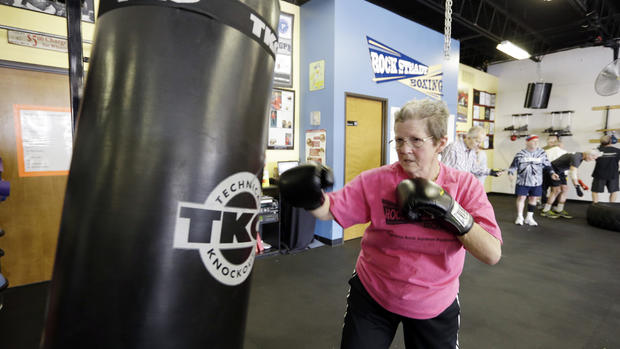NFL Hall of Famer: Parkinson's symptoms go beyond motion problems
Forrest Gregg made a career as a player and coach in the National Football League. During his time with the Green Bay Packers and Dallas Cowboys, he won three Super Bowls. He got inducted into the Pro Football Hall of Fame in 1977 and continued to coach through the 1990s.
Even as he grew older, Gregg maintained an active lifestyle. But at the age of 77, his wife noticed a tremor in his hand. His physician asked him some other questions about his symptoms, but it wasn't until Gregg admitted he was having vivid dreams that the doctor sent him to a specialist for Parkinson's disease.
"I didn't think of them," Gregg, now 79, explained of his symptoms. "I just thought I was having bad dreams."
Parkinson's disease is a group of motor system conditions that are caused by the loss of dopamine-producing brain cells. It is the most common neurodegenerative disorder, affecting 1 in 100 persons according to the Centers for Disease Control and Prevention. The disease usually affects people over the age of 50.
People who have Parkinson's develop motor symptoms including tremors in their hands, arms, legs, jaw and face, as well as stiffness in their limbs and trunk. They are also observed moving slowly or having impaired balanced or coordination. As a result, as the symptoms progress, patients have a hard time walking, talking or completing basic tasks.
Blood tests can't confirm Parkinson's, so doctors have to rely on medical history and a neurological examination. Motor symptoms are typically the tell-tale signs that someone has the disease, Dr. Hubert Fernandez, a professor of medicine and a neurologist at the Center for Neurological Restoration at the Cleveland Clinic, explained to CBSNews.com.
"The classic signs of the disease that often lead to the diagnosis are the triad: tremor or rest or shaking at rest when you are not using the arm or legs, stiffness and slowness. You need two out of the three for a diagnosis," Fernandez said.
As we are learning more about Parkinson's Disease, doctors have also identified other non-motor symptoms that may occur decades before motor symptoms occur. These include a loss of sense of smell, constipation, depression or behavior indicative of an REM sleep disorder.
"The symptom of this REM sleep behavior disorder is the ability to act out dreams," Fernandez said. "Parkinson's patients are not fully relaxed when they sleep, so they are able to act out their dream. It's not...specific to Parkinson's, but it's not very common in a general population, so it may be a sign."
In Gregg's case, he said he remembered having dreams that he was in the jungle and was holding onto his wife's wrist. He dreamt that she was being pulled away, so he put more and more pressure. In reality he was really gripping her arm. He only woke up when she screamed out loud. In another dream, he was playing football and running with the ball. Gregg woke up to find out he had been running in his sleep and kicking his wife in the process.
As a Parkinson's Disease progresses, people may experience more non-motor symptoms including fatigue, depression, cognitive impairment or dementia, drooling, having a soft voice or stuttering. They may also experience gait freezing, urinary urgency, anxiety or panic attacks.
Gregg now works with Parkinson's More Than Motion, a campaign from pharmaceutical company UCB, Inc., to educate people about the different symptoms of the disease. April is Parkinson's Awareness Month. Gregg said that the hardest part of having Parkinson's is how it interfered with love for running and hiking.
"The tremor you can live with it, depending on whether it gets any worse," Gregg said. "Having the dreams: That is not pleasant. The worst thing is not having your balance. That's something I work on constantly."
He still tries to exercise, including doing cardiovascular activities involving taking big steps and swinging his arms. Not only does this get his heart rate up, it helps him work on his balance.
"It is very important that Parkinson's patients exercise," Fernandez said. "We have lots of data that supports the benefits of exercise in Parkinson's patients. The more regular and the more vigorous the exercises are, the slower the decline or the progression of the disease."
Fernandez said that if Parkinson's disease is caught early, patients can pretty much do all the activities a non-Parkinson's patient can do. For older and moderate cases of Parkinson's where there are balance issues, patients can go to physical therapy, enroll in a dance class that predominantly sitting or participate in water aerobics. Those who have no balance at all can enroll in an aerobics class specifically for Parkinson's patients, which include Zumba classes in a supervised setting.
Gregg emphasized that the most important thing for Parkinson's patients is to get to a doctor if they think they have symptoms and not to get depressed with the diagnosis.
"There's a lot of people who lived a long time with Parkinson's," he said. "That would be my advice to someone. The sooner you find out it's there, the better. Don't run away from it."
